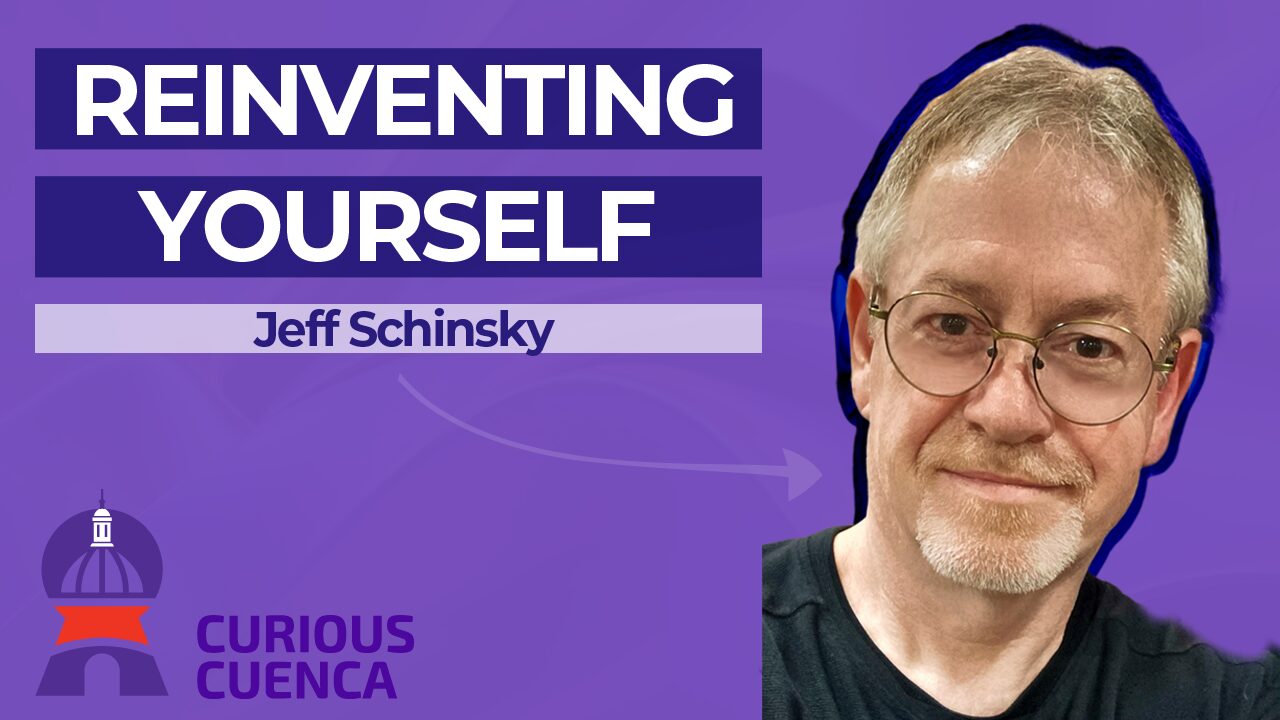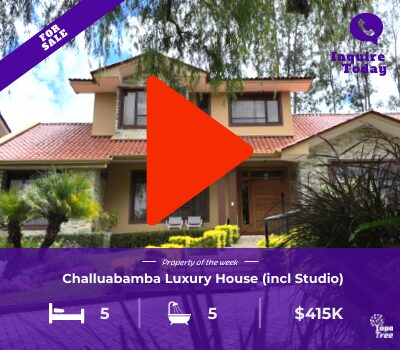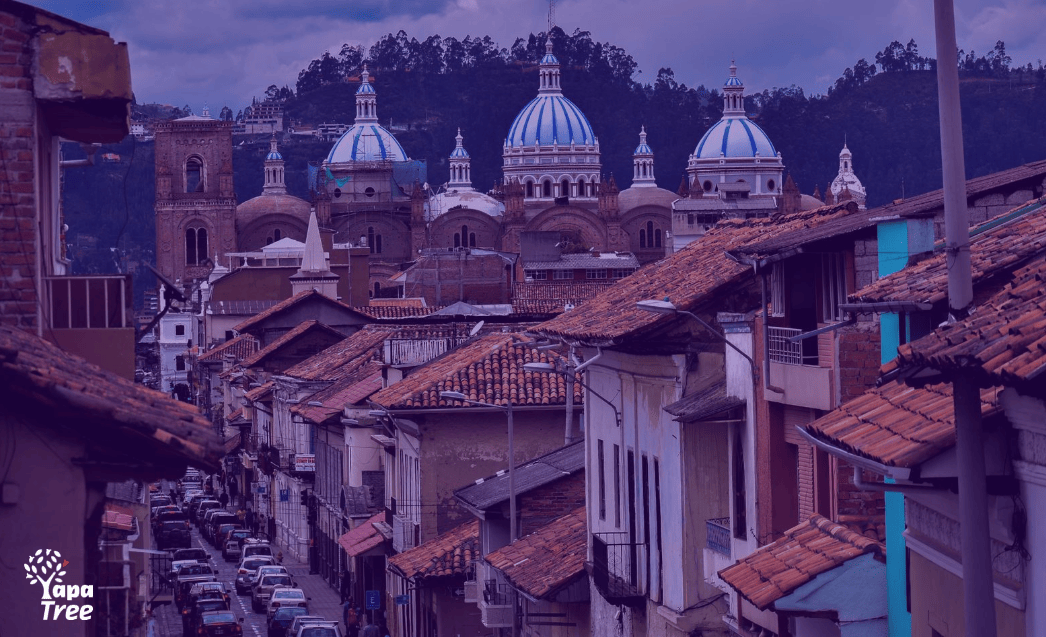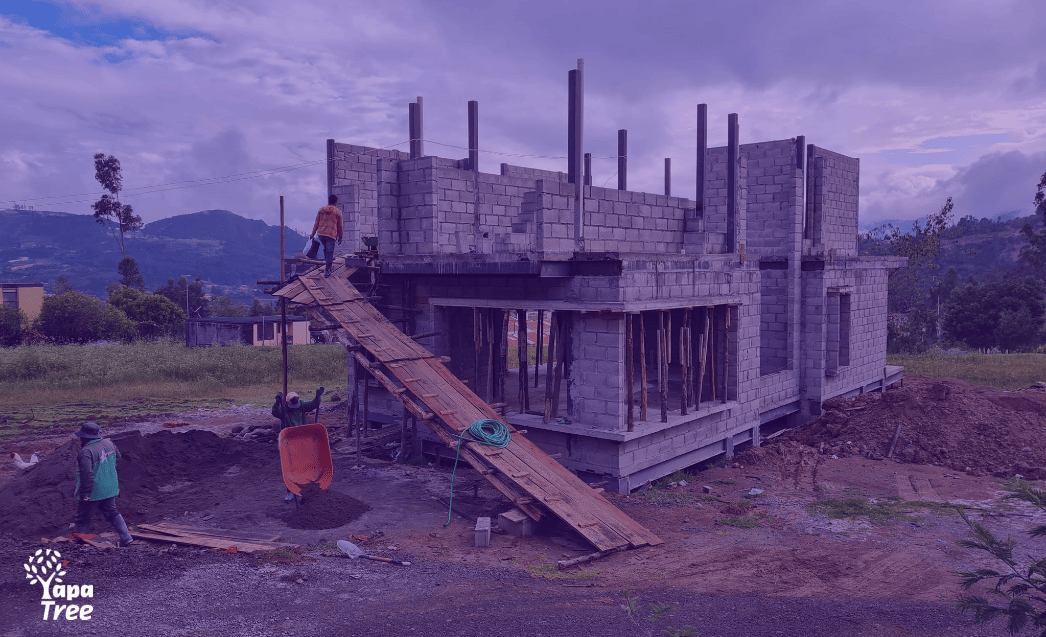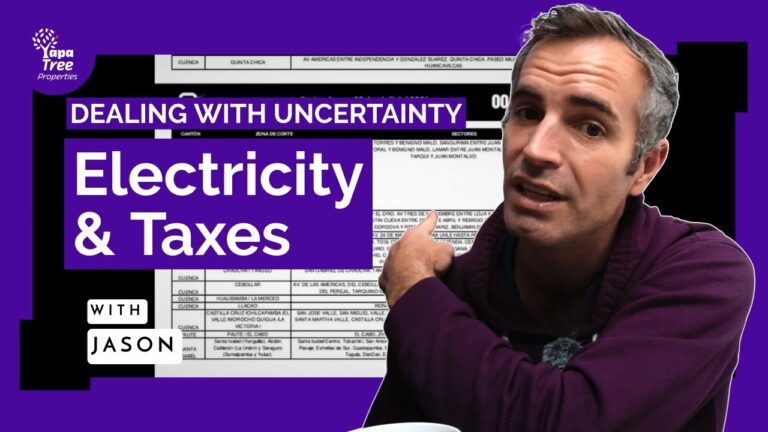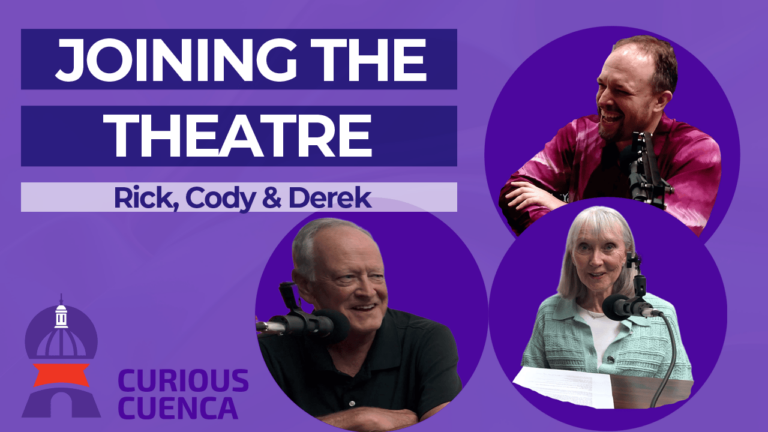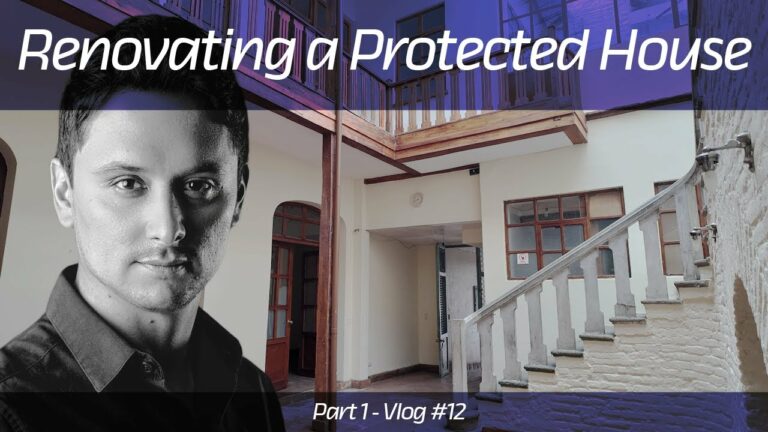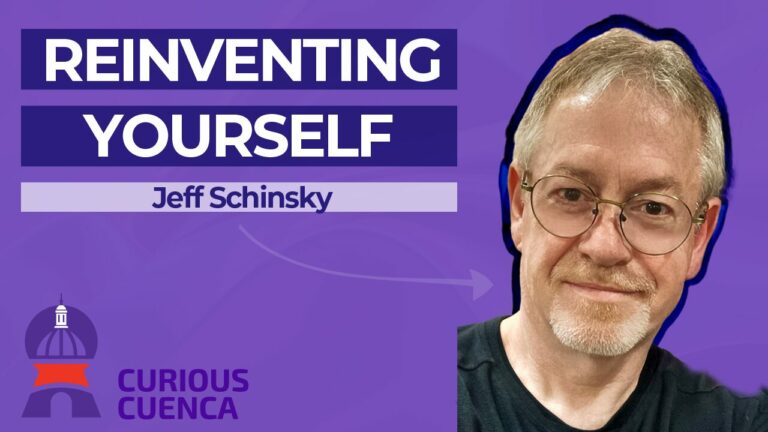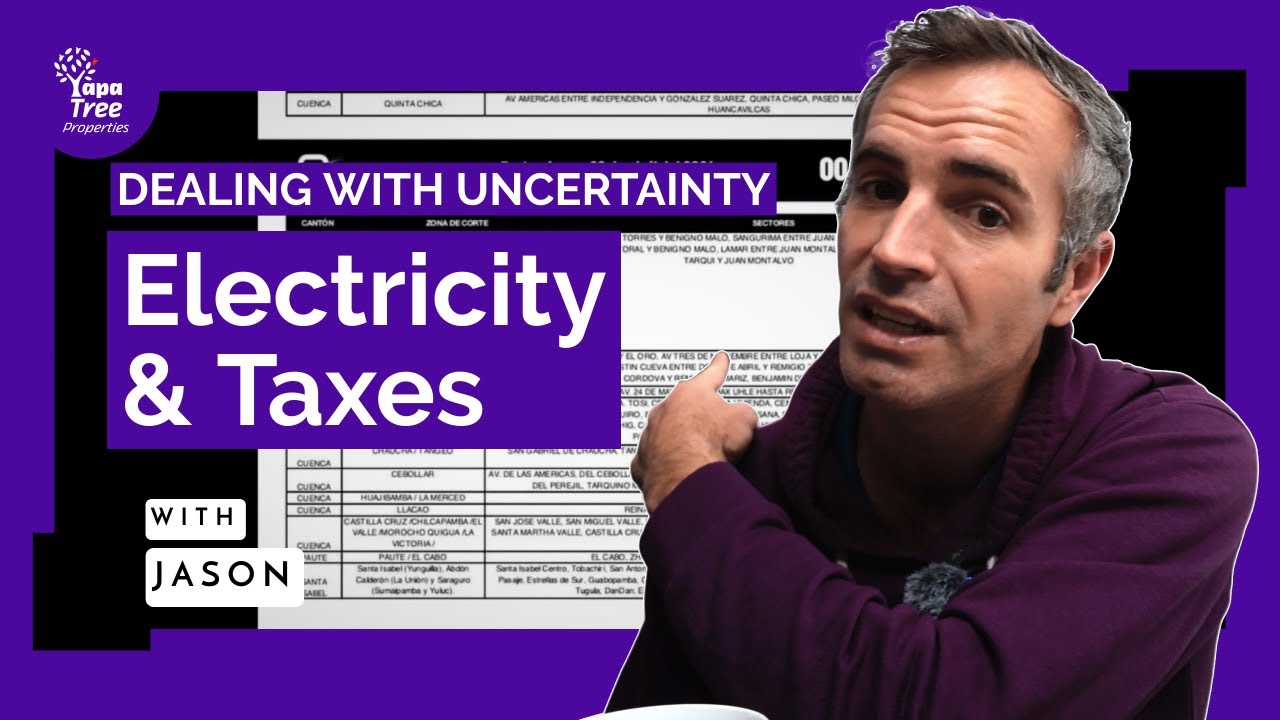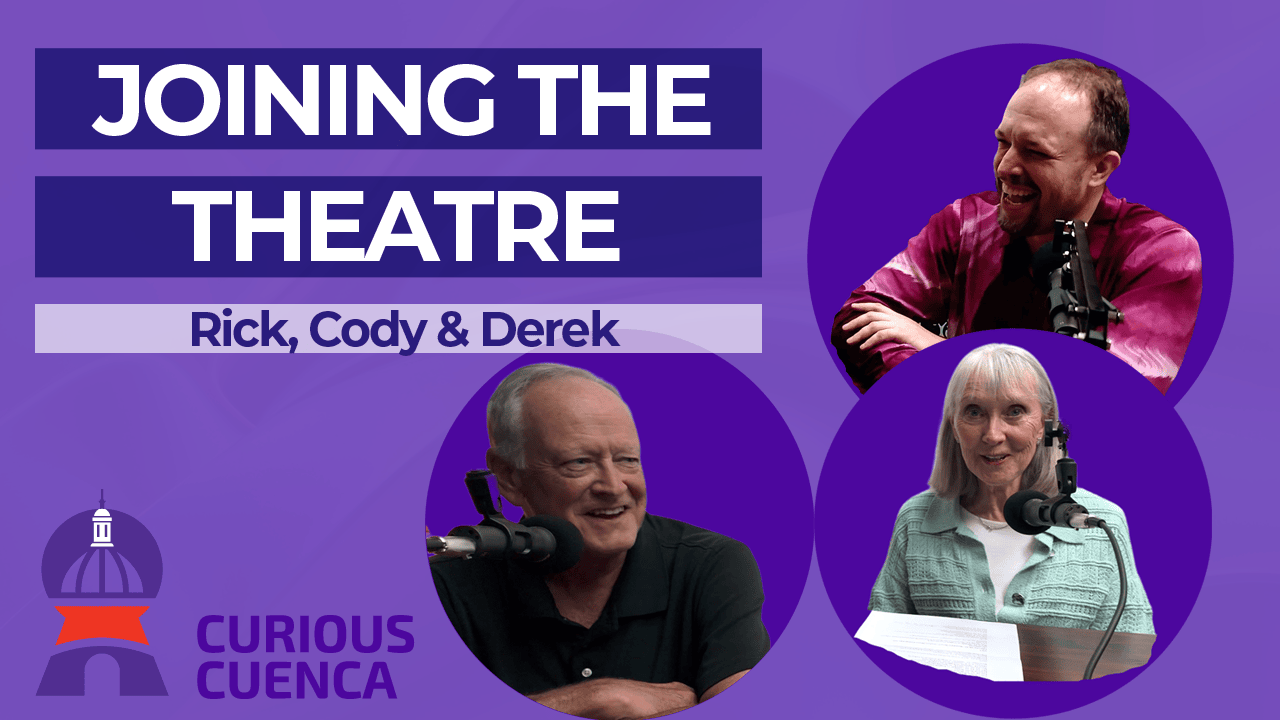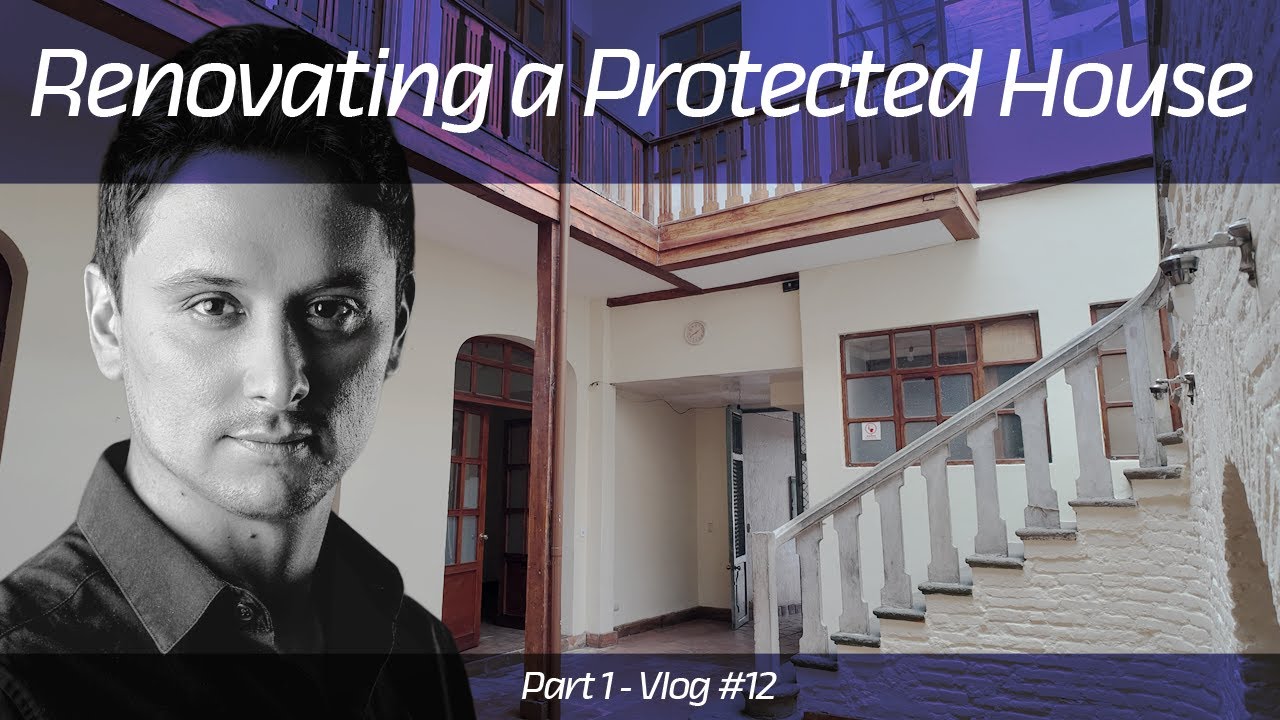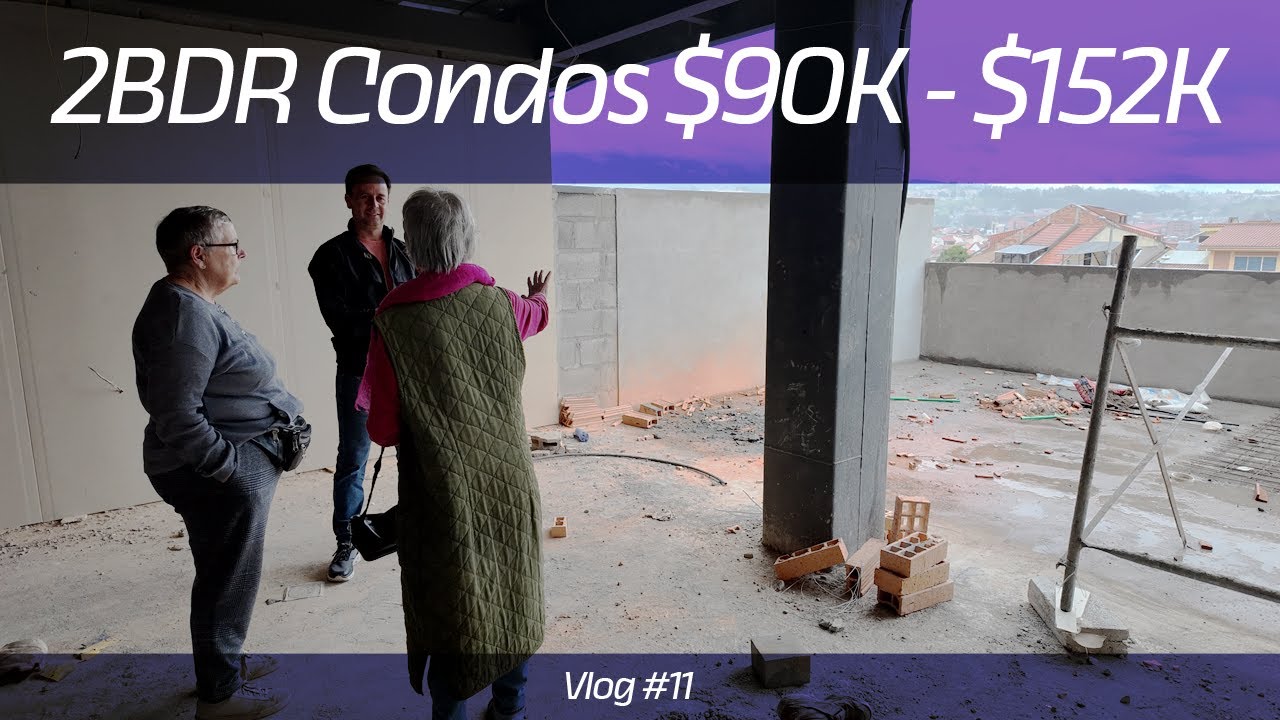Chapter Links (Timestamps)
- Intro (0:00)
- Jeff’s background(01:33)
- Cost of living (03:34)
- Jeff’s motivation for sharing (04:04)
- Initial steps (05:27)
- Cultural experiences (07:03)
- Family life (08:15)
- Expats Without Agends Facebook Group (11:32)
- Life as a rental agent (16:37)
- Choosing a neighborhood (20:15)
- Dealing with health issues (25:17)
- Learning Spanish (28:24)
- Bonsai passion (31:44)
- Fixing, not buying new (35:38)
- Making walking sticks(38:13)
- Mr Anonymity (38:46)
- Band member (40:29)
- Cuenca changes (45:54)
- Leaving Cuenca? (47:41)
- Reinvention surprises (50:14)
- Advice to younger Jeff?(51:24)
- Contact Jeff (54:14)
Welcome to our first episode of the Curious Cuenca video podcast. In this podcast series, we interview interesting people from various walks of life who live in Cuenca, Ecuador. Guests include new and old expats, businesses, interesting locals, and Cuenca-based nonprofit organizations.
We also allow you to donate to these non-profit organizations through our site here.
Our first guest is Jeff Schinsky. Jeff has written numerous detailed articles for YapaTree, including So Now You’re An Expat: Time To Reinvent Yourself! I really enjoyed this article so I invited Jeff for a chat to kickstart the podcast series.
Living abroad as an expatriate can be both exhilarating and challenging, especially for retirees seeking a new chapter in life. Jeff’s journey in Ecuador serves as a compelling narrative of resilience, community support, and personal growth amidst the backdrop of cultural immersion and adaptation. In this article, we delve into Jeff’s experiences, reflections, and valuable insights gleaned from his decade-long tenure in Cuenca, Ecuador.
The Journey to Cuenca
Jeff’s story begins over a decade ago when he made the life-changing decision to move to Cuenca. Drawn by the city’s affordability and sense of adventure, Jeff saw an opportunity for a fresh start. He recalls being inspired by an episode of House Hunters International featuring Cuenca’s attractive cost of living, prompting him to make the leap from his hometown in Denver, USA.
Upon arrival, Jeff made a point to immerse himself in the local culture, embracing the challenges and opportunities that came with living abroad. Despite initial hurdles and the inevitable adjustments of settling into a new country, Jeff found himself captivated by the vibrant community and endless possibilities for personal growth.
Embracing Change and Community
As Jeff settled into life in Cuenca, he started a process of continual learning and transformation. From a self-described introvert to an active participant in community events and cultural activities, Jeff’s journey reflects the power of embracing change. Through his involvement in various organizations and language-learning endeavors, Jeff discovered a newfound sense of purpose and belonging in Cuenca.
Jeff emphasizes the importance of community in his journey, highlighting the warmth and hospitality of the Ecuadorian people. By forging connections with locals and fellow expats alike, Jeff cultivated a support network that enriched his experience and facilitated his integration into Cuenca’s vibrant tapestry of life.
Contributions to the Expat Community
As Jeff’s journey unfolded, he recognized the need for a platform to connect and support expats navigating life in Cuenca. Thus, “Expats Without Agendas” was born—a Facebook group dedicated to providing resources, advice, and camaraderie to expats from around the world.
Through his role as a group administrator, Jeff has witnessed the evolution of Cuenca’s expat community firsthand. Despite the challenges of moderating online forums and dispelling misinformation, Jeff remains committed to fostering a sense of belonging and solidarity among expats in Cuenca.
Navigating the Rental Market
Drawing from his experiences as a rental agent, Jeff offers valuable advice to newcomers on choosing the right neighborhood, avoiding hidden noise issues, negotiating rental agreements, and managing expectations in a competitive market. His insights shed light on the complexities of renting in Cuenca while empowering expats to make informed decisions about their living arrangements.
Overcoming Health Challenges
Throughout his journey in Cuenca, Jeff has faced his share of health challenges, from battling COVID-19 to navigating the healthcare system as an expat. Despite these setbacks, Jeff remains resilient, sharing his experiences openly to raise awareness and support others facing similar obstacles.
With a commitment to proactive health management and community advocacy, Jeff underscores the importance of prioritizing well-being in the expat experience. His story serves as a testament to the strength and resilience of expats in Cuenca, inspiring others to take charge of their health and embrace the journey of self-reinvention.
Family and Community Support
The unwavering support of Jeff’s family and the expat community during challenging times was very important to him. Amidst health issues, his wife’s steadfast presence during hospital visits and the generosity of local expats underscore the importance of building a support network in a foreign land. Jeff’s experience highlights the vital role of community bonds in navigating the highs and lows of expat life, especially for retirees far from their homeland.
Integration and Language Learning
One of the pivotal aspects of Jeff’s journey is his emphasis on learning Spanish for effective integration into Ecuadorian culture. Through anecdotes of everyday interactions and emergencies, Jeff illustrates the practical necessity and cultural significance of language skills. His advice underscores the importance of embracing the local language to fully immerse oneself in the fabric of Ecuadorian life and foster deeper connections within the community.
Adapting Hobbies and Lifestyle
Jeff’s adaptability shines through as he explores new hobbies and experiences in Ecuador. From cultivating bonsai trees to joining local bands and starting a drum circle, Jeff’s journey epitomizes the spirit of curiosity and exploration that defines expat life. Through these endeavors, he not only embraces Ecuadorian culture but also finds avenues for personal expression and fulfillment, showcasing the transformative power of pursuing passions in a new environment.
Resilience and Overcoming Challenges
Despite facing health challenges and occasional doubts, Jeff’s resilience and optimism remain unwavering. His willingness to learn new skills, such as playing musical instruments, reflects a growth mindset and a determination to embrace life’s opportunities fully. Through perseverance and a positive outlook, Jeff exemplifies the resilience required to navigate the complexities of expat life and thrive amidst adversity.
Reflections on Ecuadorian Life
Jeff’s reflections offer a nuanced perspective on the evolving nature of Ecuadorian society. While acknowledging changes in safety perceptions and societal dynamics, he maintains a deep appreciation for the country’s natural beauty, cultural richness, and the warmth of its people. Jeff’s journey underscores the importance of embracing change while staying rooted in gratitude and optimism for the experiences Ecuador has to offer.
Advice for Prospective Expats
As Jeff reflects on his expat journey, he offers valuable advice to prospective expats, urging them to seize opportunities and embrace retirement early. His story serves as a testament to the transformative potential of expat life, emphasizing the importance of resilience, community, and a willingness to embrace new experiences. Through Jeff’s lens, aspiring expats gain insights into the rewards and challenges of living abroad, inspiring them to embark on their own journey of discovery and growth.
Wrapping Up
Jeff’s journey in Ecuador is an interesting and fulfilling one. A tapestry woven with resilience, community, and personal growth. We hope that you can use his experiences as inspiration for your own transformative journey throughout your time in Cuenca.
We’d love to hear about your journey in the comments. And, please do consider donating to Cuenca’s non-profits.
We’ll see you in the next episode of Curious Cuenca.
Further reading:
- Cuenca Real Estate
- Cuenca Apartments for Sale
- Cuenca Apartments Rent
- Pet Adoptions
- Cuenca Events
- Cuenca Deals
View full video transcript
Reinventing Yourself in Cuenca – Curious Cuenca Podcast EP1 (Transcript)
Jason 00:00
Welcome to the Curious Cuenca Podcast by YapaTree. I’m so excited to share this project with you. It’s a concept that has been rolling around in the back of my head for several years and it’s finally coming to fruition. The general concept is quite simple. Curious Cuenca is a video podcast where we interview interesting people from various walks of life who live in Cuenca, Ecuador. Guests include new and old expats, businesses, interesting locals and Cuenca-based nonprofit organisations.
Jason 00:28
These nonprofits also play a key role in the podcast as we allow you to donate to them. There are a lot of deserving charities in Cuenca that struggle a little bit with marketing. Well let’s be honest, they all struggle a lot and many of our audience members are in the process of moving to Cuenca and they are looking for ways that they can contribute to the new home to be. This gives them an opportunity to start making a difference before they arrive. Now, we’re certainly not trying to profit off your donations, 100% minus any PayPal fee is donated once we hit the target threshold, and we’re starting this threshold at $500. Hopefully, it won’t take us long to get there and with your support, I’m sure that we can.
Jason 01:12
And what is my motivation? Well, that’s twofold. Firstly, as a content creator, I think this is the way that I can have the greatest impact in helping these nonprofits. Secondly, I am super curious by nature and this podcast series gives me an excuse to talk to interesting people that I would otherwise probably not cross paths with.
Jason 01:33
You could say that this podcast series is the next iteration of my Cuenca journey. It represents a substantial change for me and I have to say I’ve gone through a bunch of different changes since being in Ecuador and in particular Cuenca. This brings us to today’s topic, Reinventing Yourself in Cuenca. It brings me great pleasure to welcome the very first guest of the Curious Cuenca podcast, Jeff Schinsky. You may know Jeff from his Facebook group Expats Without Agendas, or from playing in his band Northern Roots, or from one of the other myriad of activities that Jeff seems to have taken up throughout his retirement in Cuenca. Welcome Jeff. Thanks a million for being here the very first question is just the basics how long have you been in Cuenca and why did you choose Cuenca as your destination?
Jeff 02:22
I just passed my 10-year anniversary on the 1st of February. I came down in December of 2013 and within two months I had sold most of my possessions and had come down to Cuenca to live.
Jason 02:40
What? What was the spark about Cuenca?
Jeff 02:44
Well, I had seen an episode of House Hunters International with a Canadian couple who are no longer here. But they were looking at apartments and other properties you know five hundred six hundred a month for these large you know really nice places. And here I was in Denver paying sixteen hundred dollars a month for a small two-bedroom apartment average of 300 a month for utilities. And cell phone plans and cable TV plans everything costs more there, and when I saw how much you know they were talking about the cost of living here, I put it in the back of my mind. I wasn’t ready to move here yet but it stayed there in the back of my mind.
Jason 03:34
So it was the cost of living that initial spark was like, hey, I can live in Ecuador and it’s gonna be like half of what you were considering in the US? Or when you were on the maths, what did it end up looking like?
Jeff 03:46
It looked more like about a third, actually, and I didn’t just come here as an economic refugee like I know some people have. I looked at it as, you know, I have a sense of adventure so, it just seemed like something to be fun to do.
Jason 04:04
Fantastic. The article on reinventing yourself in Cuenca is fantastic, it’s very detailed so thank you very much for writing it is very personal and I do appreciate that as well. What inspired you to write such a personal account or share with others your personal account?
Jeff 04:22
Well, the main thing is that my life has changed so much from what it used to be before I came here, I was, I was very much an anonymous person who pretty much kept on myself. I’m a hardcore, you know, almost off-the-scales introvert. But my life here has changed so much it’s opened up in so many different ways and I’ve gotten into other activities, met so many other people, learned the language here, getting involved in so many things. I just wanted to show people that there were options here. Cuenca is a good place to get out and do things and find things to do whether it’s at idiomART taking a class on you know watercolor or whatever it is. There is so much that the people can do here and I just kind of wanted to share that. I mean, I went from someone who did almost nothing outside the house to someone who’s branched out in a lot of different ways and I just wanted to share that with people and let them know that was a possibility.
Jason 05:27
I think it is a great testament to the possibilities out there and this theme is something that I personally come across all the time you know, every expat that comes here, they’re like, “How am I going to spend my time?” Well, of course, you can spend it however you’ve been spending it in the States but this is a really good time to actually think about how and what you want your life to be. So I think for me, that’s probably one of the main messages is, yeah, you can effectively come to Cuenca, embrace the change. And there’s a lot of opportunities that are available to you. But I think the point is they’re not going to chase you and this is something that you mentioned in the article, is that you had to put yourself out there, especially as an introvert. I imagine that was actually quite difficult to put yourself out there, especially during those initial steps. Can you walk me through some of those initial steps that helped get yourself out there?
Jeff 06:18
Well, one was I’m not very good with boredom. So as I didn’t speak Spanish yet at the time at least. I mean I can speak a few words, a few phrases, but essentially, and I was alone. I came here by myself and I started feeling kind of isolated so I started looking for things to do, and I just kind of naturally led to, you know, picking up one hobby, then another hobby. You know, some of those hobbies became permanent passions, and some of them became, just something that I did temporarily. I enjoyed it for a while and then I moved on.
Jason 06:55
So you just didn’t want to sit inside watching TV all day and I know that’s tempting for some expats because it’s the easy option.
Jason 07:03
And so moving along to some of the more cultural side of things and a lot of expats especially you know our office, the studio it’s in El Centro. It has a romantic feel and for everyone that comes to Cuenca, I think it’s fair to say that one of the initial attractions is the cultural diversity then my question to you is how has that helped to reshape the identity that you now have in Cuenca, the cultural experiences that you’ve had here?
Jeff 07:29
Well, I have lived abroad before. I spent 20 years in the US Air Force and lived in two other countries. Fortunately, people there spoke English, so I didn’t have to learn another language. But yeah, you know, having to learn the language here. Well, I didn’t have to you know, a lot of people don’t.
Jason 07:54
But you felt you needed to.
Jeff 07:56
Yeah, I feel like if you’re going to live in another country, if you really want to experience it to its fullest, you need to be able to communicate with the people around you and you know, I didn’t want to rely on facilitators and other translators for everything I do and so.
Jason 08:15
You mentioned in the article about basically becoming part of an Ecuadorian family and I can definitely relate to that and there’s a lot of learnings. It’s not always easy, but it does add a whole different dimension to the time here and so I would love it if you could just walk me through some of the joys but also some of the challenges on the other side that you have personally experienced from this.
Jeff 08:44
Yeah, well, one of the immediate challenges was being able to understand all the slang that my three new daughters spoke. I still have problems sometimes understanding people under 30 here.
Jason 08:57
Yeah, they’re Cuencanos?
Jeff 08:58
Yes, well, my wife is originally from Porto Viejo and…
Jason 09:04
Is that coastal, you know, slang and stuff like that present in your wife?
Jeff 09:09
After she speaks to her mother or sister on the phone the Manaba in her comes out and she starts speaking what I call Chino so I have to remind her to switch back. She’s lived in Cuenca for well over 20 years so she can speak either coastal or Sierra Spanish. And but some of the other challenges were I mean they just do things a lot differently. There’s a lot of and not necessarily in a bad way, I mean there’s a big focus on family and friends and I know I’ve learned a lot from them. For instance, in the US you don’t walk into a bank or walk out of a bank and say thank you to the security guard holding a shotgun but when I noticed that my wife was, you know, she said hello and goodbye and thank you to everybody and I didn’t really realize how important that was here. And it’s really part of the culture and I found from, you know, from speaking to some Ecuadorians that they consider a lot of the expats to be rude or dismissive because they don’t do those things and so that was a really important lesson for me here and a bit of a challenge because of my introversion, I’m not naturally outgoing in that in that way.
Jeff 10:36
But in terms of you know, some of the joys of being in an Ecuadorian family I don’t think I’ve washed more than a couple of dishes in the last seven years. They won’t let me do anything for myself, so to say that they take good care of me would be an understatement. So and sometimes that can be frustrating because I was a fairly independent person. I was single for eight years before I got here and so while I still mourn the loss of my independence to a certain degree, you know that being part of a loving family makes up for a lot of that.
Jason 11:18
Michelle’s mother is living with us at the moment, so she’s very much taken on you know what you’re talking about like she’ll just go to the kitchen, make food, make sure no one in the house is hungry, and probably some of the neighbors as well so, it is a lot of fun for me.
Jason 11:32
Let’s move on to your Facebook group, Expats without Agendas because I can definitely relate to that. We started our Facebook group for a very similar reason, it was the current landscape wasn’t necessarily fulfilling the needs what we thought of the expats here. Now things have changed a lot since we started our group and even more so I imagine since you started your group cause your group’s older than ours. And so my question is, how do you feel about the current landscape of the myriad Facebook groups that exist specifically to help expats here in Cuenca?
Jeff 12:09
Well, for one thing, I feel like there’s a lot of duplication. When I first got here, there were two or three of general expat groups now I can’t even count them there are so many.
Jason 12:25
The barrier to entry is so low, that anyone can just in two seconds create a new group.
Jason 12:33
How do you feel about the quality of information in those groups and I guess are there any limitations at the moment that you see?
Jeff 12:39
Well, there are limitations in all the groups really, including mine. I mean, as an active admin in the group, I try to make sure that any information given out is accurate.
Jason 12:51
That’s tough and very time-consuming.
Jeff 12:52
It is tough especially if somebody else in your group you know gives out some bad information you know you have to figure out a diplomatic way to try to correct that but I have seen in other groups – some that I’ve been kicked out because they were giving out bad information like on rental law and different cultural things and so I find that frustrating. When I visit those other groups I see some of the information even though it’s just not accurate and that may be based on perhaps one experience with one facilitator, one doctor, one hospital, or one insurance company.
Jason 13:44
That can be tough to balance though, because you know, obviously, everyone has an opinion. Everyone’s opinion is valid, but if you only have a sample size of you know one then that’s kind of tough to really put a lot of weight behind that I guess that’s something that can get missed sometimes you know what is the sample size and stuff like that. So I think there are some limitations especially when with the misinformation that does exist out there. But at the same time, I also think they act as a really good starting point. And so, like I would not suggest anyone to base their decision solely on, you know, untrusted, referral unknown referrals in many instances but at least it’s going to give you somewhere to start with, so I think there’s value there.
Jeff 14:27
Well, I’m a fairly active admin in that I do look at the information that people are posting and I do as much fact-checking as I can, and as much damage control as I can. But one of the things I do is I preemptively write a lot of articles or just you know different posts to get information out there and try to get some good information out there to start with so that people have something to work with.
Jason 14:56
So, Jeff, I do understand to some degree the amount of effort that goes into moderating some of these Facebook groups, the amount of mediation that you end up doing, you know, between members. I don’t think a lot of people really understand how much time and how many man-hours are spent on moderating these groups and so the question for me is why? You know, what does Jeff get out of it, ad also I’m going to assume that it just helps enhance your sense of community here and my question then is how does it enhance the sense of community?
Jeff 15:28
Well, I’ve come to meet and know a lot of these people and made a lot of friends. I also want to do a shout-out to my admin team. I have three other people who helped me a lot so that’s very important for any larger group. But I mean what I get out of it is I’m kind of a compulsive helper from you know it’s kind of based on my 25 years in adult education. I just enjoy sharing information, and things that I know will help. Really the overdriving thing was I wanted a group that would help expats become more successful expats, you know, not make a lot of the mistakes that I made. A lot of my posts end up being me relating something that I did that I shouldn’t have done or I wish I’d done differently. I like to think that it’s helpful, but at the same time, you know, there’s a, there’s a certain personal sense of satisfaction knowing that you’re providing a useful service to others.
Jason 16:37
It definitely helps with that purpose. So moving on now to your experience as a rental agent, you know that’s obviously something we have a lot of crossover with. We do a lot of rentals here at YapaTree. So what I would love to know first is what were the main lessons that you’d learned throughout your time as a rental agent here in Cuenca and just to be clear, you’re no longer offering this service?
Jeff 17:00
No. Well, for one thing, it’s very different from renting in the US you know where they have these standardized contracts that you just signed without reading here you really have to read the lease. One thing I found out was that most of the time when a rental agent is working for the owner the agent supplies the lease. And I’ve spent a lot of my time rewriting leases and making them fair to both parties. Actually, one of the things that is kind of a maxim of mine, it’s not 100 true, but I like to think that there are no bad landlords, just bad leases, ’cause it’s, you know, which isn’t really true there are bad land landlords out there, but you know.
Jason 17:50
Don’t start off on the right foot of the good lease.
Jeff 17:53
Right, a good lease is what insulates you from some of the…
Jason 17:58
One of our big learnings is expectation setting is probably the most important part of where a lot of agents just don’t do a particularly good job with the tenants and with the landlords too. That’s the other side of the equation that a lot of expats don’t necessarily see, but it’s not necessarily easy on the landlord’s side because they have their expectations as well and so you’re really trying to manage those. How did you deal with that side of things, dealing with the landlords in particular, I know that your Spanish is very good, but still, I’m assuming at the time there was still a little bit of a gap or can you just walk me through that?
Jeff 18:35
Well, my Spanish is fair, it’s decent anyway. Well, it was a gringo working with a Venezuelan partner. And you know, the Venezuelans have a bit of a challenge here being accepted by the local people and so you can imagine, you know, a gringo and a Venezuelan, showing up at your door and say, do you mind if we list your house, I think.
Jason 19:01
It’s with a Colombian as well from the same challenges sometimes.
Jeff 19:05
Yes, that was more of a part-time thing but my regular partner was Venezuelan and at one time we actually got run off the property by an old man who didn’t like expats or Venezuelans. I mean he literally ran us off the property and said don’t come back, you know so.
Jason 19:24
But in general, did you find landlords were workable or did you just find that there was some certain key challenges that just kept coming up and up?
Jeff 19:32
Well of course they they’re not always keen on paying a commission for the help but a lot of them do realize the value of having someone promoting their property and are more than happy to do that. So I mean the biggest challenge really was just finding the properties to list and.
Jason 19:59
Very manual, right is that your experience as well?
Jeff 20:02
Yes, very manual spent a lot of time driving around, walking around looking for properties. So yeah, it was pretty time labor-intensive.
Jason 20:15
Yeah, absolutely we call it pounding the pavement and it really is. I do know Jeff as well that you’ve spent a lot of time studying the various neighborhoods that you’ve pulled together the map of Cuenca neighbourhoods, which we’ve used a lot at YapaTree so thanks for that great resource. But my question is really, what’s your advice on choosing a particular neighborhood for newer expats?
Jeff 20:39
One of the most important things that seem to be an issue for expats here is noise and knowing what to look for and what to look out for. Things like you know if you’re upstairs in a house that you’re considering renting, you want to look out the window and see who’s next door might be a machine shop or a cuy ranch or something like that. Some friends of mine actually moved into a place where there was an empty storefront and they thought oh this is a nice quiet area until they started having cock fights there on Friday and Saturday night.
Jason 21:24
Hidden noise issues are the tough ones, especially like you think somewhere could be really nice.
Jeff 21:28
Like living next to a park that has bailoterapia either early in the morning or late at night that’s a big issue. Some types of churches, and different schools living next to or across from a vacant lot can be a big wake up. You know suddenly they start building. I know people who’ve bought very nice condos and then in the vacant lot across the street, they built a taller one so suddenly they have no view anymore. So I tell people to avoid vacant lots, you know, because you know they’re not going to stay empty for very long.
Jason 22:07
It’s also important how big that lot is as well. And so this is something that we come up with a lot and so some lots obviously you can do certain amount on, but for example to have a big building you need a certain size lot in order for that to happen so I completely agree but at the same time I’ll probably take that a little bit step a step further and just be you know really clear on what is possible to be built in this certain neighborhood just so you’ve got some sort of idea as to what to expect potentially in the future.
Jason 22:36
And I’ve personally found, like operating the rental business, there’s a lot of challenges here, a bunch of different challenges, some cultural, many cultural to be honest with you, that’s probably been my biggest challenge. I’m very much interested in the challenges that you faced and whether or not you’d actually recommend going down this path or potentially being a rental agent here in Cuenca.
Jeff 23:03
In a word, no. I wouldn’t. I wouldn’t recommend it to any expat, really. Unless they just needed the income, which was my case. I came down here with enough of an income to support one person and then all of a sudden I was in a family of five. So I had to look for some way to supplement that income.
Jason 23:23
But there are some expats and this is the question that we’re answering really is if you need to generate some sort of income here, is this a path that you would suggest we do come across this a little bit.
Jeff 23:33
It’s certainly as long as you have a decent level of Spanish, you understand the rental laws, and have a pretty good feel for cultural differences here and how to approach people because approaches can be very important. I refer to it as the dance. You know you need to, you know there needs to be some compliments there needs to be some building we were.
Jason 24:01
Talking about before with the introductions and making sure they’re always proper.
Jeff 24:04
Right all of that’s extremely important so you know for somebody who is up for that challenge it can be an interesting job. I won’t say I didn’t enjoy it, but it was challenging at times. You know, sometimes you have a client that just doesn’t like anything and you know.
Jason 24:33
Showing them 20 different apartments and nothing.
Jeff 24:34
Right. If I wish the light was a foot over this way or the tile on the bathroom was a different color so yeah.
Jason 24:42
And especially in the rental market, it moves so quickly that if you don’t have a yes pretty much straight away, then that apartment’s going to go right and then you’re back at square one with properties that maybe instead of nine out of 10 boxes tick 7 out of 10.
Jeff 24:55
Right
Jason 24:56
We always suggest to people if you find a place and it’s gonna work for you do need to act relatively quickly. Don’t take the first property that comes to you and if you do like a property, chances are next time you know give it a couple of days if it’s a good property, it’s just not gonna be there. That’s the reality of the rental market right now. I’m not saying it’s always going to be like that.
Jason 25:17
Moving on to some of the personal side of things I know a little bit about some of the health issues you had, especially moving away from Cuenca you spent a bunch of time in Manta and predominantly for that. Can you just walk me through how you managed to overcome some of those health issues because you know, a lot of expats move here and they do have similar issues as well.
Jeff 25:40
Well. For one, I’ve not exactly overcome all…
Jason 25:44
You’re still there with the COVID.
Jeff 25:46
Yes, I got COVID about 20 months ago and I’ve had a long COVID since then and then I got COVID again just about two months ago and that didn’t help matters. Just in those past 20 months, you know I had COVID twice, dengue fever once from a mosquito bite down in Manta, torn hamstring, and developed a lot of different issues related to the long COVID. And just about two weeks ago I had prostate surgery which you know I mean that’s how that’s kind of personal but I wrote up the whole story of my expat page because you know these are issues that men of a certain age need to be aware of and again I like to put the word out there so people don’t make the same mistakes I did. I was told, well, maybe a year and a half ago, “Well, your prostate’s a little enlarged and someday you may need surgery.” To, “Oh, your prostate’s four times normal size. It needs to come out right now.”
Jason 27:03
In a space of a year and a half.
Jeff 27:04
Yeah, and so you know.
Jason 27:08
Getting those checks is basically what you’re saying.
Jeff 27:09
Right. I don’t want to see somebody else have major health problems because you know I didn’t share what I know about it. Again that’s part of the educator in me who likes to get the word out and help people not make mistakes that I made.
Jason 27:32
How much of an impact has your family had on this and just, you know, helping throughout this period?
Jeff 27:39
Well, they’ve been incredibly supportive. I mean I honestly don’t know how I would have gotten by without the help of my family. The times I’ve been in the hospital my wife stays there the entire time and I’ve also I’ve also gotten a lot of incredible support from the local expat community too. The level of caring and generosity here in the expat community is as far above anything I ever experienced in the US and it’s a special thing here. I mean I can’t go into a lot of detail but I’ve gotten a lot of help from local expats here.
Jason 28:24
Awesome and just in terms of the integration side of things, exactly how important do you think learning Spanish is? Do you think it’s possible to properly integrate, especially culturally if you come here and you basically have Spanish light or you’re basically making an active decision not to learn Spanish? How much is that likely to impact someone?
Jeff 28:49
Well, the example I always give is what if you’re at the mall and you collapse and you can’t tell the people standing around you, “My heart pills are in my backpack.” Or, “I’m diabetic and I need some glucose.” That’s actually something I experienced at Supermaxi once. A woman had… an expat woman had collapsed and there were like 20 people around her trying to help her and figure out what was wrong and they were all saying well I think it’s this or I think it’s that. And I came up there and she says I’m diabetic and my glucose went too low and I just collapsed and so and I was able to help in that situation.
Jason 29:30
So you’re basically saying like not, yeah obviously it’s going to enhance your life, but it can also if you don’t even have to know the basics, it can actually be quite detrimental and really quite dangerous in certain circumstances.
Jeff 29:41
Right, but in terms of enhancing your life, I mean it seems like a tiny thing but I used to go to this one shop to buy printer cartridges when I first got here and I wasn’t speaking hardly any Spanish at the time. And the first time I went in and worked the courage to ask for the same cartridge in Spanish they sold it to me for like $5 cheaper. So just being able to use Spanish to negotiate prices is a big thing here. Language is culture. I mean you can’t really separate the two so if you don’t know at least maybe a lower intermediate level of Spanish you’re never really going to fully integrate into the culture here and I do know a lot of people who left because they just didn’t.
Jason 30:44
Just couldn’t get over that hurdle.
Jeff 30:45
Right they just, they just didn’t feel like they fit in. So yeah.
Jason 30:48
Well, that’s interesting. So yeah, we don’t want to beat it down that you have to learn Spanish and everyone’s free to make their own decisions, but I do think it’s good to know that this is the likelihood. You’re only going to get so far if you are actively making that decision not to learn Spanish.
Jeff 31:04
Yeah, whether they’ll learn it or not that you’re gonna, you know it’s a personal decision and a lot of people believe they’re too old to learn which I know that’s not necessarily true.
Jason 31:23
Not true, but it does get harder right?
Jeff 31:23
It does get harder as you get older, but you know it’s.
Jason 31:27
Easy to use that as an excuse as well.
Jeff 31:29
Yeah, but I would say that at a minimum, people should at least learn what I would refer to as survival Spanish, you know, the things that you need to do daily business, to address medical issues that you may have, things like that.
Jason 31:44
And I think that’s pretty much achievable for most people though. Like that level of survival Spanish is attainable. So moving on to some of the other things. I really like just the variety of different activities that you’ve basically been keeping yourself busy with and I’m a little bit the same you know like pottering around different things. One of the ones in particular I enjoyed was the bonsai and growing up my mom was obsessed with the bonsais, absolutely loved them and I would always see her, you know, fussing and finessing and it was a lot it was a huge commitment and she loved it until the day that someone stole all of her bonsais. And obviously, you know, she left it. But it sounds like you enjoyed it but you basically stopped because it was just too difficult to keep them alive ultimately.
Jeff 32:31
Well, I mean that was an issue. I definitely have more that have died than are still alive. But I mean Bonsais are very particular, they get accustomed to a particular space, a certain amount of water, a certain amount of light, and if you suddenly change things on them… The way you have to create them, the way the root system is, they’re just extremely delicate so any changes and they tend to react badly and because I moved a number of times and I would take the plants with me, I’d lose two or three every time.
Jeff 33:08
Did you take some to Manta with you?
Jeff 33:10
No, I didn’t take any plants down there, but I didn’t really quit because they were dying on me it was more it had kind of run its course. I wanted to move on to different things, but there was also the issue of the pricing of the plants. You used to be able to go to a nursery and you pick up a small plant that looks like, yeah that’s got bonsai potential and it cost $2 or $3 and then suddenly all the nurseries caught on and now those same plants were costing $10 or $12 and so I just got to the point where it…
Jason 33:54
You didn’t want to pay four times.
Jeff 33:56
No, and again, I was ready to move on to other things. It was right about the time that I got married and had a new family so I had to start focusing on other things.
Jason 34:09
Have you visited the Nayon neighborhood in Quito, just outside of Quito?
Jeff 34:13
No, I haven’t.
Jason 34:14
Next time you go to Quito, check it out. I know you’re not really into bonsais anymore, but I’m sure you’ll appreciate the variety and the prices there too. There are some really quality prices. We go there quite a bit every time we’re in Quito.
Jeff 34:27
There’s actually a place on Diez de Agosto close to ETAPA that it’s a bonsai shop. They have a lot of bonsais there for sale and the prices are fairly decent and they have a lot of supplies for people who want to get into that hobby so.
Jason 34:41
There is a little bonsai club here I believe, but I think it’s only in Spanish. Do you know of any?
Jeff 34:46
I’ve heard of it and I know that they’ve had some big shows and things here, but I never attended any of them. But no, I still, you know, love the bonsai. I still have a few of them but you know I just have other things that occupy my time.
Jason 35:02
What about orchids? Have you moved on to orchids at all?
Jeff 35:05
No, I haven’t gotten that brave yet no.
Jason 35:09
I’m the same.
Jeff 35:09
I love them though. I’ve been to that shop down by Gualaceo where they have all the orchids. They’re beautiful.
Jason 35:16
Go check out Uzhupud Gardens. The same owners from Ecuagenera, they’re now owning Uzhupud gardens and so there’s just orchids everywhere there. It is amazing and it’s great to see what the possibilities are. Of course, when we take those plants home they don’t tend to survive as long or thrive in the same way, but that’s a challenge that we’re working on too.
Jason 35:38
One of the other things that I really enjoyed was you have this mentality of fixing as opposed to throwing away and buying new and that very much fits with the Cuencano way of life and I really like that. What got you into that and I guess why do you continue to do that? Because I know we don’t have Amazon here now but it’s got a lot easier to purchase a lot of the little creature comforts that you may like.
Jeff 36:12
Well, I mean, one was just seeing how they do it here. I mean you go into Supermaxi and Coral and there’s a whole aisle of blender parts you know and if and if you walk around El Centro, there are shops to fix pretty much anything whereas you go to La Rapida with a pair of old beaten up practically destroyed running shoes and they can make them almost new again. So, that was kind of part of my inspiration. And then the rest of it was just a necessity. You know, when I’m back in the States, I go to Home Depot or Lowe’s and I go through those gray metal drawers where they have all the tiny bits of specialized hardware that you can’t find here to bring a lot of that back with me so I can use it for different projects or repairing different things but yeah, and the quality of goods here is not that great. A lot of them are imported for places where quality is not all that important, you know. Microphone stands for instance, I can’t tell you how many microphone stands I’ve prepared for either for myself or for other people because they tend to last about 3 months and then they fall apart. There’s a certain level of satisfaction in taking something that’s broken.
Jason 37:32
What’s given you the most satisfaction? Is there, you know, one little project or, you know, one repair job that you’ve done that you’re like, wow, I’ve surprised myself here?
Jeff 37:40
Well, pretty much all of them I would say I’ve been, you know, it’s always a huge sense of satisfaction to say you know to take something that’s not functional, making it functional again. And yeah, it’s just something I’ve always enjoyed but I never did it anywhere near the level. You know, like the little $10 shopping cart you buy at Coral, the wheels fall off of those after a couple months but I found a way to fix those and you know it’s yeah, it’s just personally satisfying being able to do that.
Jason 38:13
What about your walking sticks? Are you still manufacturing those?
Jeff 38:17
No, that was kind of a passing fancy too. I did those for a while and sold some, and still have some, but you know when I go hiking I need one as like a third leg to help me keep my balance and keep me from falling down the hill but that, you know, that was fun while it lasted but it was, you know, again, I decided just to move on to other things.
Jason 38:46
Awesome and just moving on a little bit. So I don’t want to beat the introvert thing to death, but that is a key challenge and my question is you’ve you started off as an introvert, you mean you still introvert a person but you were very much guarded towards keeping your anonymity at one point but now you basically are seemingly saying let the floodgates open. And I guess what change internally has occurred throughout that process like how do you now perceive yourself now that you’re, I guess less anonymous?
Jeff 39:21
Well, the anonymity thing wasn’t really so much of a choice as just kind of a natural aspect of being an introvert and it’s not that we don’t like people we’re just a little more selective about people that we decide to hang out with and we have difficulty maintaining too many connections at once so we tend to keep our circle of friends you know close friends I should say small. I have a lot of friends here but you know in terms of really close friends you know that that’s a fairly small circle but I wouldn’t say that my introversion has really changed here I’m still the same person. Like for instance if I’m a trivia at Common Grounds, there may be 60 or 70 other people in the room, but I’m only focused on the three other people on my team. You know, everything else is this kind of background noise, so.
Jason 40:29
Is that the same when you’re performing in the band because that seems to be next level in terms of a challenge?
Jeff 40:34
Exactly. I tend to, you know, I’m focusing on the band, focusing on the music. I mean I’m aware there’s an audience there and I do get pre-show jitters like anybody else but once we get going it’s all about the music so you know focusing on each other in the band, making sure we’re you know we’re doing what we’re supposed to be doing. We also have fairly dedicated core fans that come to our shows so it’s almost kind of like a family reunion, it’s not that intimidating, so.
Jason 41:08
And you have been in multiple bands throughout your time here. How has that whole process, you know being in different bands, would you say that really helped you overcome you know some of the cultural difficulties which everyone faces when we come here because your first band for example, I know was it two, three Ecuadorians that you’re playing with?
Jeff 41:30
Oh yeah, that was about it was about six or eight months after I got here. I had just purchased a pair of bongos and a pair of congas and an Ecuadorian band was looking for a percussionist, they put the ad in English in Gringo Post and I contacted the guy, and next thing I knew I was out in Sayausi practicing with them. But they couldn’t get or keep a vocalist so the band ended up folding after a while but it was fun. It was my first real kind of immersion experience in Ecuadorian culture.
Jason 42:08
And looking back, so you said they were looking for a vocalist and I know at the time that wasn’t something that you specialized in or practiced. Looking back, do you think you could have participated as a vocalist?
Jeff 42:25
I don’t think my level of Spanish was good enough, or I don’t think I could have gotten the accent close enough to really have pulled that off. Plus it wasn’t really something I’d even considered at the time. I mean, I was 60 years old before I ever sang in front of another living soul knowingly so this is all kind of new for me still.
Jason 42:49
Very good. And just moving into the music theme a little bit more, how did music help you to just reinvent yourself in general, so give you maybe a different feeling or different perception of yourself?
Jeff 43:05
I’ve always been a big music lover and you know, when I was in the car by myself, you know, I’d be singing what the radio turned up a full blast, you know, but never in front of anybody else. One of the groups that I practice with which also never really came to anything, we never really actually started performing. But the person trying to sing the lead on one song was having problems hitting a couple of notes and they asked me, “Do you want to give it a try?” and you know, “Who me?” But I did and you know I kind of choked down my natural fear of that sort of thing and I did it and they seem to like what I was doing. But you know that ended kind of abruptly and maybe a year or so down the road I was contacted by two of the different members of that initial group and those ended up being like two of the key people in the bands that I’ve been in where we’ve actually done live performances and it’s really allowed me to explore, you know, the side of me that does love music and there’s a lot of satisfaction from knowing that people enjoy.
Jason 44:16
So if someone’s musically minded, would you suggest that as a potential outlet here in Cuenca with the different open mics and stuff?
Jeff 44:24
Absolutely, there are endless opportunities for people who are into music here and people who play music. This was quite the opposite when I was in Manta, there was exactly 1 expat band and there was one expat in the band. But there wasn’t a music scene down there which was very disappointing for m. But here just about any night of the week, there’s a different group playing whether it’s an expat band or an Ecuadorian or visiting band from another country. I mean, they’re just endless opportunities here to enjoy music either as a performer or as a fan.
Jason 45:07
Maybe even if you don’t even know that you’re into music, maybe a starting point is the drum circle that you started, you know, many years ago as well.
Jeff 45:14
Yeah, I’d only been here about 3 weeks. I brought down 3 jambais in my suitcase and started a drum circle and pretty much kept it going for six, seven, eight years. Again time and other commitments kind of limited my ability to lead the circles. They actually do them at idiomART now maybe every couple of months or so I still come to those. I still enjoy it.
Jason 45:54
Yeah, awesome. And just moving on to some sort of reflection-type scenarios. So you’ve been in Ecuador for quite a while now. How has your general perception of Ecuador changed during this time? Especially at the moment. You’ve seen the news all around the world with the different headlines around security and stuff like that so I don’t want to just go down that security path, but that is one example of things that may have changed during your time.
Jeff 46:21
Well yeah, that’s definitely, that’s probably the saddest part of it for me, that kind of vacuum that was created in the pandemic. It’s sort of allowed a lot of different things to develop here and you know increased crime levels and you know gang violence, especially on the coast. I still consider Cuenca a fairly safe city but I’m definitely a lot more careful when I’m…I don’t hesitate to walk wherever I want to, but I’m a lot more cautious than I used to be. I mean Cuenca was a very innocent city when I first got here 10 years ago and now not so much. But I still love it here. It’s an amazingly beautiful country. Biologically and diverse and the plants and everything and I mean there’s still a lot of it I’ve not seen yet, but I still love Ecuador. I’m kind of an eternal optimist so I keep hoping that things are going to reverse and be like they were and you know, knock on wood.
Jason 47:41
Sure, so obviously you know you’re not going anywhere, but were there any times when you did consider leaving, and what sort of what was driving that?
Jeff 47:52
Well, one of the things that I think a lot of expats struggle with here is missing their family members in the US. I have four children, and 10 grandchildren in the US and there’s always a bit of a tinge of guilt about not being there for them all the time. I try to communicate with them as much as I can and try to get back as often as I can but that’s the one thing that’s made me think about maybe I should think about moving back. But, my daughter and one of my sons have been down here to visit and they understand completely after seeing my life here, how much different it is, how much I’ve grown, how much it’s just done for me personally in so many ways they’re like all for it now and they say, “You stay there.”
Jason 48:48
That’s great that’s great they’re supportive do they visit by chance?
Jeff 48:53
Well, my youngest son’s been here once and my daughter’s been here twice and they both live here if they could. But their work situation makes it more and family situations make it difficult so.
Jason 49:07
Absolutely but I also, I’ve heard from several expats that have basically said the same thing that yeah, they missed their grandkids in particular, but kind of funny in a way but they would go back, you know, make the effort, move back to the States to be closer to the grandkids. But then the grandkids basically give some sort of response like you’re smothering me. They’re like I love you and I love spending time with you. But you know, maybe holidays are sort of where it’s at and so some expats have actually come back after that because they’re a little bit disappointed with that. Have you experienced anything like that or no, not yet?
Jeff 49:42
Well, I mean, I actually experienced that before I moved here. I mean, all of my children are grown and have children – grown children of their own and just finding time to get together with them all. It’s like you said you know holidays, special events, the summer picnic, something like that. Other than that you know they have lives of their own so it’s just not always easy to get together so I probably see them almost as much from here as I did when I lived there.
Jason 50:14
Yeah, very good. And like looking back is there some aspect of you know, let’s call this transformation that the reinvention that really surprised you?
Jeff 50:28
Probably mostly the music aspect. I mean, I never in a million years would have imagined myself being part of the band, let alone actually singing lead vocals on different songs and things like that. It still kind of blows my mind that I’ve gotten to that point because it’s just something I never would have considered. I had a bad experience with a junior high school music teacher. He put me on the spot and that just kind of shot any desire I ever had to be openly musical in front of other people. But yeah that’s one of the things that’s really surprised me and it’s become a passion of mine that’s really kind of one of my main focus these days is focusing on music.
Jason 51:24
And Jeff, if there was one piece of advice that you could give to your youngest self before you moved to Ecuador, what would that be?
Jeff 51:31
It would be to not wait. You know if you have the means and you’re able to get away, come here as soon as you can because you know I was able to come here at age about 56/57 because I had a military retirement and that just barely covered the minimum pension requirements. I’ve heard this from a bunch of expats but you know working is for suckers. If you come down here and start enjoying your retirement at an earlier age, I highly recommend that and that’s why I probably would have been here a few years earlier if somebody had given me that advice.
Jason 52:20
Just giving you a bit of a nudge a few years beforehand so you know that’s really good. Especially if you’re saying you know your effective cost of living is a third oh yeah, that really means that you can retire early under most circumstances so that’s really good advice. And the very last question is just looking forward, what challenges lie ahead for you and what goals do you still want to achieve here in Cuenca and Ecuador in general?
Jeff 52:47
Well, some of the challenges are already related. I’ve had a string of health challenges. Again it’s a good thing I’m an optimist because I believe things will continue to get better. Regarding some of my future goals. I wasn’t satisfied just doing percussion and vocals. I decided especially when the COVID lockdown hit, to get my hands on an old guitar and started using YouTube videos to try and teach myself, I’m not very good but I’m getting better and my goal is to eventually get to the point where I can you know accompany myself and maybe do some open mics. Yeah, it’ll broaden my opportunities in terms of you know staying involved with the music scene here. And I’ve since bought a mandolin and a ukulele and some harmonicas so now I play poorly on a number of instruments but I keep working on them.
Jason 54:02
Sounds like music brings you the most joy at this stage of your life. Yeah, you’re gonna explore that more by the sounds of it.
Jeff 54:08
Of yeah, it’s definitely a passion of mine. One that I intend to keep pursuing as long as I can.
Jason 54:14
Awesome, Jeff. Well, thank you very much for your time today. I’ve got a lot of value out of our chat and I’m sure our audience has as well. But if someone wants to get in touch with you, what’s the best way for them to do that through your Facebook group or something else?
Jeff 54:27
Yeah, probably through my Facebook group, Expats Without Agendas. They can message me there or if they have my phone number, they can WhatsApp me.
Jason 54:41
Awesome. Thank you very much for your time today.
Jeff 54:43
Thank you for having me.
Jason 54:45
Super and remember, if you do want to make a donation to one of Cuenca’s deserving nonprofits, feel free to do so on our website. I’ll provide the link in the description. You likely already know that YapaTree has a very active real estate business, so feel free to get in contact if you’re in the market to rent or buy. And thanks a million for watching. We’d love to hear your thoughts on this new podcast format. Do feel free to email me at [email protected]. Ciao Ciao.

